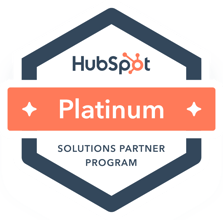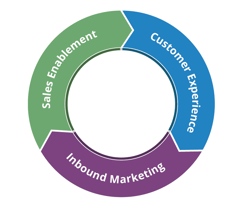In today's highly competitive business marketplace, the difference between surviving and thriving often comes down to having a successful online marketing plan. As the global population becomes more digitally connected, it's more apparent how critical it is that companies develop a strategic marketing plan and execute it to the best of their ability to achieve maximum results. This article covers the eight essential components to help you create a comprehensive and successful online marketing plan.
1. Review current online marketing strategy
Start by listing your company's marketing campaigns over the past several years, and identify the success level and the strategies that were most impactful for each. It's also critical to look at what campaigns were not as successful, so you don't make the same mistakes twice. Having this information at your fingertips will not necessarily be a guideline, but it should provide a foundation for assembling your new online marketing strategy that includes prior analytics and insights to help build your future marketing plan. Marketing automation software programs are an excellent option for keeping track of your marketing efforts and campaigns to see how your results have changed over time.
2. Build a team and a choose a technology platform
Your team members (current and new hires) should each have a good background in some aspect of digital marketing, which they can contribute to the overall effort. One of the first things you'll need to consider will be the platform to bring together your marketing channels. A dynamic marketing mix of tools and techniques, with a platform to measure this, is essential as you can then collect data from multiple sources and optimize based on the results. An example would be using Google Analytics for advanced web analytics. HubSpot is a tool we recommend as an all-in-one marketing automation and inbound marketing platform to tie in your content (blogs, emails, landing pages), social, competitive intelligence, SEO, and more.
3. Consider social media and PPC advertising
Social media advertising and even pay-per-click advertising are proven strategies for generating an increased interest with new prospects. It can be even more effective when used in conjunction with SEO marketing methods. It would not be suggested to rely ONLY on social media advertising or pay-per-click advertising; however, any keywords or topics your business is trying to rank for should appear on your website, not just in the ads directing visitors there. It's essential to keep in mind that any paid advertising needs to have a cohesive marketing strategy behind it to ensure you build your organic traction and continual brand awareness.
4. Utilize search engine optimization (SEO)
This should be one of the primary pillars of your online marketing strategy because it centers around creating content on your website, social media, guest blogs, and more. By focusing on SEO, your website will start to get more organic visitor traffic and overall brand awareness. This should help your site appear on the first page or two of search results for your targeted keywords, and that will funnel more traffic to your business, giving you a greater chance to convert those visits into leads and customers.
5. Use social media marketing
Social media provides you with a forum for reaching consumers who rely heavily on the opinions of others for determining whom to do business with in the future. This is true for both B2B and B2C products and services. The ideal platform may be different, but the importance of social media remains the same. It's also a cost-effective way to promote products and services, garner reviews, and communicate with customers and prospects in real-time.
6. Optimize for mobile users
It's no secret that smartphone users are conducting more business through their devices than ever before and that it's becoming a more significant percentage of all business transactions each year. For this reason, any successful online marketing strategy must provide the best possible mobile experience for this critical group of consumers. You can also check out one of our videos that explains responsive web design. This applies not only to your website but to emails you send, videos you share, and more. Everything you do online must be mobile-friendly, or you risk losing potential leads and customers.
7. Execute your plan
While this might seem like a straightforward step, it involves more than pushing a button and waiting for leads to come in. Your plan should be executed so that new online strategies are launched at optimal times and all the different channels function as intended. For example, your Facebook ads shouldn't start running before your landing page is optimized, published, and ready to go. These small details can "make or break" a successful marketing campaign launch. You should always be prepared for the inevitable glitches that require your team's intervention but try to minimize those as much as possible by creating processes and procedures that make your marketing execution strategy second to none. Since most marketing plans feature 60-80% recurring tasks and 20-40% various pivoting changes or one-off activities, creating a process is the best way to ensure a successful launch.
8. Measure and analyze the success of your plan
It is essential to measure the success of your online marketing campaign accurately, and there is any number of analytics tools available for that purpose. Many of these are very precise in identifying specific areas of success or failure, allowing you to make the necessary adjustments to your strategy. Having a tool that will enable you to view results from specific months, quarters, years, campaigns, and pages will be instrumental in having an accurate marketing plan. We use HubSpot for our marketing campaigns and a majority of our analytics. When you analyze your campaign's part of the process that you outline, it allows you to see what's working and what's not working so you can optimize your campaigns in real-time. Schedule a consultation to see how integrated analytics can help you optimize your marketing campaigns.
The fundamental approach to an excellent online marketing strategy should involve making maximum use of those channels which lend themselves best to promoting your business, using tools to help you execute your campaign, and constantly measuring the success of your efforts. You should expect this to be an ongoing process, always requiring refinement and adaptation in response to ever-shifting consumer habits. If you can confidently conclude that your plan includes all the above items, then we would suggest you start creating a roadmap for success by looking at your current results and setting goals for the future for your next campaign.
Here's a quick video to help further explain the integration of all of the many channels involved in an integrated online marketing strategy.
Need help getting started? We invite you to schedule an inbound marketing consultation where we can discuss your current campaign initiatives, strategy, and even the process you have outlined to make sure it's a success.







.png?width=250&name=diamond-badge-color%20(1).png)
